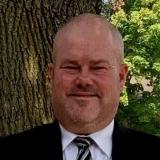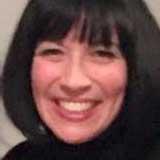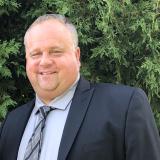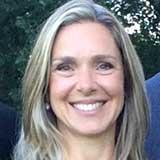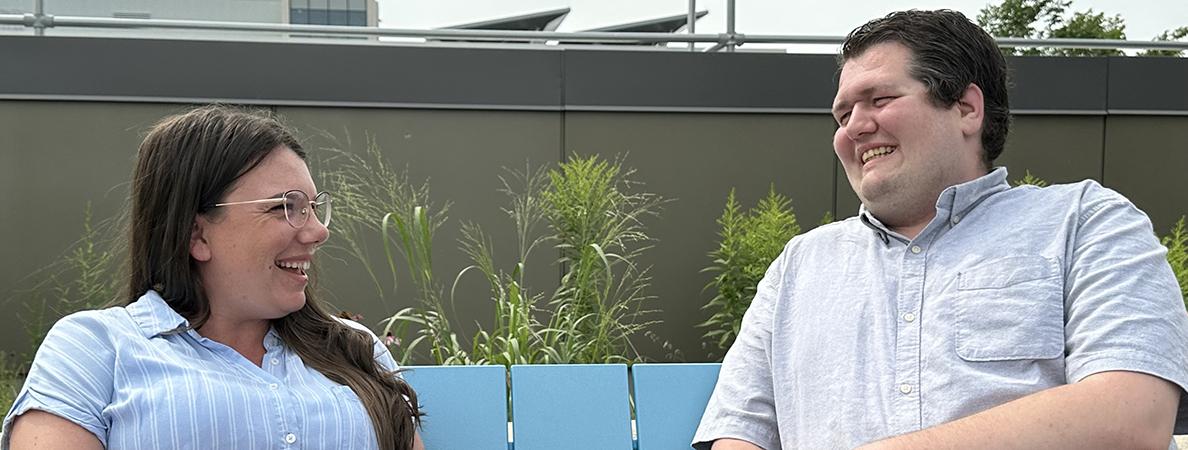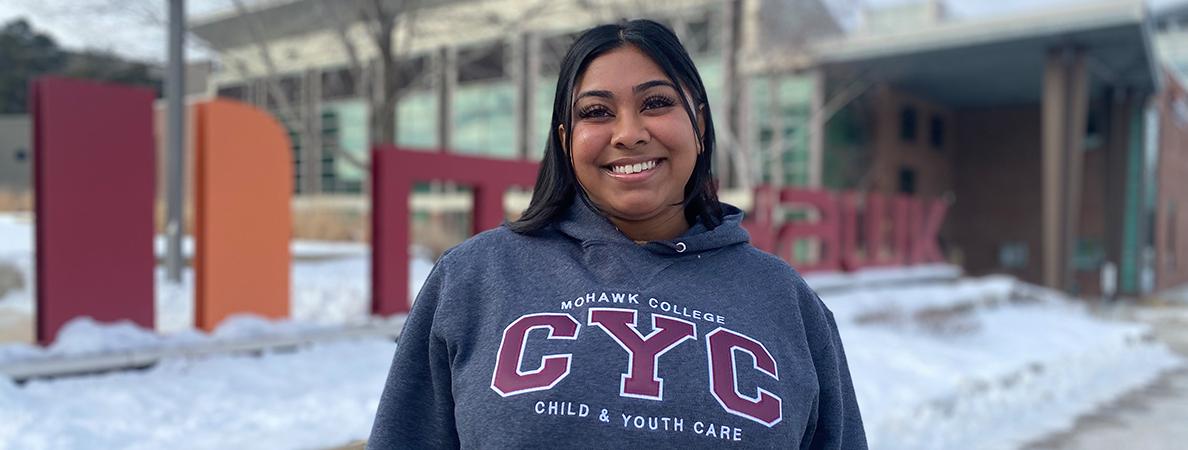Child and Youth Care - 612
Overview
Program Highlights
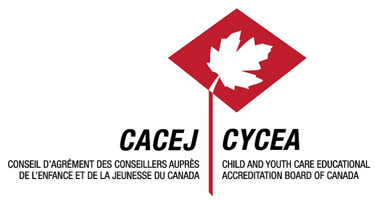
- The Child and Youth Care program includes three different practical, hands-on field placement experiences.
- Mohawk's unique Child and Youth Care program includes the support of two full time Field Placement Specialists who work collaboratively with students to determine field placements and support them throughout their Field Placement experiences. Learn more about Field Placements.
- The Child and Youth Care program has a high employment rate for those in both full-time and part-time studies
What you'll learn
- Specialize in supporting change with children and youth ages of approximately 4-25 years old and their families who are experiencing a range of social, emotional, mental health and behavioural challenges.
- Implement a range of prevention and intervention strategies for children, youth and their families. This will focus on trauma informed practice, crisis intervention, conflict management, problem-solving, life space interviews, therapeutic activity programming, life and social skill development and group work
- How to engage with children and youth experiencing difficult home situations, mental health challenges, neurodiversity, substance abuse, behavioural problems and in conflict with the law
- Learn equitable, diverse and inclusive approaches to advocate for the rights of children and youth
Program Length
3 academic years (periods of 8 months)
This program offers 2 intake options:
September Intake- Students will start in September and complete a three-year Advanced Diploma program during fall and winter semesters for 3 years.
January Intake- Students will start in January and be in school for four continuous semesters for the first year of the program: Winter, Spring/Summer, Fall and Winter. Students will not be off during the summer of the first year of the program.
Second and third years of the program are completed in fall and winter semesters. Students will be off during summer semester of second year.
Admission
Admission
- OSSD or equivalent (Mohawk Academic Upgrading, GED) including:
- Grade 12 English, C or U or equivalent
- Attendance at program orientation is strongly recommended
- For competitive programs (the number of qualified applicants exceeds the number of available places), selection will be based on the average of the highest senior level final grades in the required courses that are available at the time of ranking
- Applicants should note that some employment opportunities require that certain physical standards must be met as a condition of employment
- Options are available for mature applicants
Domestic and International student admission requirements
Applicants whose first language is not English will be required to demonstrate proficiency in English.
Don't have the necessary requirements?
Language Requirements for Applicants with English as a Second Language
- See below for accepted equivalents for Grade 12 English:
- Successful completion of the GAS-English for Academic Purposes (478) program
- TOEFL minimum score of 560 (83 Internet based)
- or IELTS Academic minimum score of 6.5 overall with no band less than 6.0
- More information about acceptable certificates, can be found on the International Admission Requirements
Tuition and Fees
Tuition and Fees
2025 - 2026 Domestic Tuition and Fees
| Description | Semester 1 | Semester 2 |
|---|---|---|
| Compulsory Ancillary Fees | $907.11 | $809.78 |
| Co-op Fees | N/A | N/A |
| Compulsory Program Fees | $0.00 | $0.00 |
| Domestic Tuition | $1,354.04 | $1,354.04 |
| Total Domestic Charges Per Semester | $2,261.15 | $2,163.82 |
| Total 1st Year Fees | $4,424.97 | |
Above fees based on full-time September program start date. Contact Student Services to confirm fees for other start dates or semesters.
- Full Cost Breakdown
- Explore payment options
- Book costs for your program can be found through the Campus Store
- If your program includes a clinical, practicum, or field placement, you may be required to complete Preplacement Non-Academic Requirements (NARs). Full details will be provided in your classes. This is an additional cost (above tuition/ancillary fees and textbooks). More information can be found on the Preplacement Services webpage.
- You may also be required to purchase additional items such as uniforms, field trips and/or various training/certification opportunities. Full details will be provided in your classes. This is an additional cost (above tuition/ancillary fees and textbooks).
2025 - 2026 International Tuition and Fees
| Description | Semester 1 | Semester 2 |
|---|---|---|
| Total Tuition & Ancillary Fee | $8,890.00 | $8,890.00 |
| Co-op Fees | N/A | N/A |
| Program Compulsory Fees | $0.00 | $0.00 |
| International Tax Recovery | $450.00 | $375.00 |
| Total International Per Semester | $9,340.00 | $9,265.00 |
| Total 1st Year Fees | $18,605.00 | |
If you pay by wire transfer, please note your bank might charge you a fee to transfer money. Make sure your transfer includes the Mohawk payment and the wire transfer fee. This applies to each wire transfer payment you make.
- Explore payment options
- Book costs for your program can be found through the Campus Store
- If your program includes a clinical, practicum, or field placement, you may be required to complete Preplacement Non-Academic Requirements (NARs). Full details will be provided in your classes. This is an additional cost (above tuition/ancillary fees and textbooks). More information can be found on the Preplacement Services webpage.
- You may also be required to purchase additional items such as uniforms, field trips and/or various training/certification opportunities. Full details will be provided in your classes. This is an additional cost (above tuition/ancillary fees and textbooks).
Additional Information
Financial Assistance
Financial Assistance
When it comes to paying for your education, investing in your future can be more affordable than you think. A Mohawk education is one of the most cost-effective means of acquiring the skills and knowledge you need to have a prosperous and rewarding career.
As you start on your chosen career path, it's important to have a realistic set of expectations regarding the expenses associated with attending college. In addition to your tuition fees, you will also need to budget for books, supplies, housing, and other related living expenses. You may be able to supplement your income and savings with scholarships, bursaries, or loans. It pays to do some research into what types of financial assistance you may qualify for.
Available Financial Assistance Resources:
 OSAP Eligible. Learn about Ontario Student Assistance Program - OSAP (domestic students only)
OSAP Eligible. Learn about Ontario Student Assistance Program - OSAP (domestic students only)- Working on Campus
- Additional Sources of Funding
- Financial Assistance Home Page
Apply for Awards:
By submitting a Scholarships and Bursaries Application every semester, students have access to over $3 million in Mohawk College scholarships, bursaries and Ministry-partnered funding to help meet their financial needs.
Financial Literacy:
Whether saving for school, sticking to a budget, or planning for a major purchase, financial literacy affects us all. That's why Mohawk College is dedicated to helping students improve their financial literacy and become more confident in managing their money.
- Complete the free online Money Matters Module to earn Co-Curricular Credit!
- Financial Resources and Calculators
Program of Studies
Course Overview & Descriptions
Click on the course title for a course description.
Experiential Learning
Experiential Learning
How you'll gain skills
- Apply theory to practice during 3 different unpaid field placements.
- Explore academic content through field trips and site visits.
- Through a mix of labs and interactive simulations to further develop course concepts.
- Engage in a community project.
To learn more, please visit the Center for Experiential Learning.
Field Placements
- For information regarding field placements, please see the Child and Youth Care Field Placement page.
- Participate in a variety of field placements with Children, and Youth which could include schools, out-of-home facilities, foster homes, shelters hospitals, youth justice and community-based settings and others.
- CYC Field Placement Specialists work collaboratively with students when assigning placements and provide ongoing support and guidance throughout field placement experiences.
- You will need a clear, current Vulnerable Sector Search/Police Clearance for each field placement. The CYC team will let you know when to apply for this. There is a cost associated with this that is the responsibility of the student.
Become an Agency
If you are a community partner interested in hosting a placement student from Mohawk College's Child and Youth Care Program, please contact either sean.flaherty [at] mohawkcollege.ca (Sean Flaherty) or ken.brill [at] mohawkcollege.ca (Ken Brill).
Learning Outcomes
Learning Outcomes
Program Learning Outcomes, often referred to as ‘Program Standards', set out the essential learning that a student must achieve before being deemed ready to graduate.
In many cases these program learning outcomes were developed by the Ministry of Colleges and Universities (MCU) in consultation with employers and educators who are experts in the program field. To ensure the outcomes remain current and in line with industry needs, we invite our employers, graduates working in the field and current students to re-examine and update them during regular, ongoing program review focus groups.
Career Opportunities
Career Opportunities
Where you could work includes:
- Elementary and Secondary Schools
- Specialized Classroom Settings
- Mental Health Services
- Out-of-home-care Settings
- Youth Criminal Justice Services
- Community Services
Your future career options
- Child and Youth Workers
- Child and Youth Counsellors
- Youth Support Workers
- Child and Youth Practitioners
Opportunities for grads

- Become a member of the Ontario Association of Child and Youth Care (O.A.C.Y.C.).
Educational Pathways
Educational Pathways
Pathways to Mohawk
If you've successfully taken a course at another post-secondary institution, you may be able to earn course exemptions toward your credential here at Mohawk.
If you have successfully completed one of the following programs at Mohawk, you may be eligible to receive transfer credit in this program. To start a new program at Mohawk, you must apply via ontariocolleges.ca.
Transfer from
You can transfer to the Child and Youth Care - 612 from the following programs:
General Arts and Science Certificate (College Transfer)
Early Childhood Education
Educational Support
General Arts and Science Diploma (University Transfer)
Recreation Therapy
Receiving Program
Child and Youth Care
Transfer to
You can transfer from the Child and Youth Care - 612 to the following programs:
Early Childhood Education (Intensive)
Social Service Worker (Intensive)
Recreation Therapy (Intensive)
Autism and Behavioural Science
Brain Disorders Management
Community and Social Services Management
Concurrent Disorders
Mental Health and Disability Management
Credit transfer agreements have been arranged to make it easier for students to move from Mohawk to another institution.
Transfer From Child and Youth Care To
Athabasca University
1 University Dr
Athabasca AB T9S 3A3
Canada
Bachelor of Professional Arts in Human Services
1 University Dr
Athabasca AB T9S 3A3
Canada
Brock University
1812 Sir Isaac Brock Way
St.Catharines ON L2S 3A1
Canada
Bachelor of Arts in Child and Youth Studies
1812 Sir Isaac Brock Way
St.Catharines ON L2S 3A1
Canada
Munster Technological University
Bishopstown
Cork
Ireland
Bachelor of Arts (Honours) in Social Care
Bishopstown
Cork
Ireland
Mohawk College makes every effort to ensure the accuracy of each transfer opportunity. Please note that changes may occur in program offerings, admission requirements, and transfer credits granted by the receiving institutions. We advise all students to check with the receiving institution directly for the most up-to-date information.
Don’t see what you’re looking for? Search ONTransfer.ca for more pathways with Ontario public colleges and universities.
Mohawk College makes no warranty or endorsement of material contained within links to external websites, nor does the College assume any responsibility for the linked website or its contents.
Tech Requirements
Tech requirements
- access to computer for online course work
- access to MyCanvas
Additional Information
Additional Information
Prior Learning
- The Child and Youth Care program also offers a process that allows credit for prior learning
- Up to 75% of the credits required may be achieved through the experiential learning mode
- Advanced standing will be processed on an individual basis
Frequently Asked Questions
Where can I work as a Child and Youth Care (CYC)?
Out-of-home care settings, hospitals, schools, shelters, foster care, wrap-around services.
How do Field Placements work?
Students experience three field placements:
- Semester 2: 56 hours in a school setting
- Semester 5: 448 hours in a CYC specific setting
- Semester 6:504 hours in a CYC specific setting
Am I paid when I am in Field Placements?
Field Placements are unpaid. However, the skills and experiences gained are valuable for your resume and therefore attaining work in our CYC field
Is there anything I need to be able to go to Field Placement?
You will need a clear, current Vulnerable Sector Search/Police Clearance for each field placement. The CYC team will let you know when it’s time to apply for this. There is a cost associated with this that is the responsibility of the student.
Is there a lot of group work in this program?
Group work is often at the heart of what we do as CYCs. There is a significant amount of group work in the program to help prepare you for work in the field.
Faculty
Program Coordinator
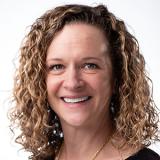
Julie Scheffel
Faculty
Contact Us
Contact us
Domestic Canadian Students
Contact Student Recruitment
Haven’t applied yet and have questions?
Contact our Student Recruitment team for information on programs, how to apply, and more.
Contact Admissions
Contact our Admissions advisors for help with your application.
Email Admissions
Book an Appointment ⤻
Phone: 519-767-6871
International Students
Contact International Student Recruitment
Contact our International Student Recruitment team for information on programs, how to apply, and student life.
Contact International
Email: intl.representatives@mohawkcollege.ca
Phone: 1-905-575-2254
Toll free phone numbers:
For general questions: 1-888-Mohawk9 (1-888-664-2959)
Contact International Admissions
Contact our Admissions advisors for help with your application.
Contact International Admissions
Phone: 1-905-575-2254
*Not all programs are international eligible. Please see our programs available for international students.
Accessible Learning Services
Are you a student with a confirmed or suspected disability? Visit our Accessible Learning Services website to discover how we can help you.
Program Coordinator

Julie Scheffel
Meet Ryan McAlpine, a Child and Youth Care graduate!
Meet Hannah, a Child and Youth Care graduate!
We're here to help
We’re here to support you throughout the admissions process with online and virtual services. For general inquiries, please call 519-767-6871.
Applied and have questions?
Email Admissions or Book an appointment in person or by phone.
Haven’t applied and need help?
Email Recruitment or Book an appointment in person or by phone.
Applied as an international student?
Email International Admissions.
Take a virtual campus tour
Explore Mohawk College from the comfort of home! Our virtual campus tours provide a guided visit of our buildings, labs, services, classrooms and athletic and recreation centre.
Program delivery
Learn about program delivery terms.
Please note: in-person, virtual, and hybrid classes vary according to the program and some programs may be in-person only. Refer to the Program Overview for more information.



